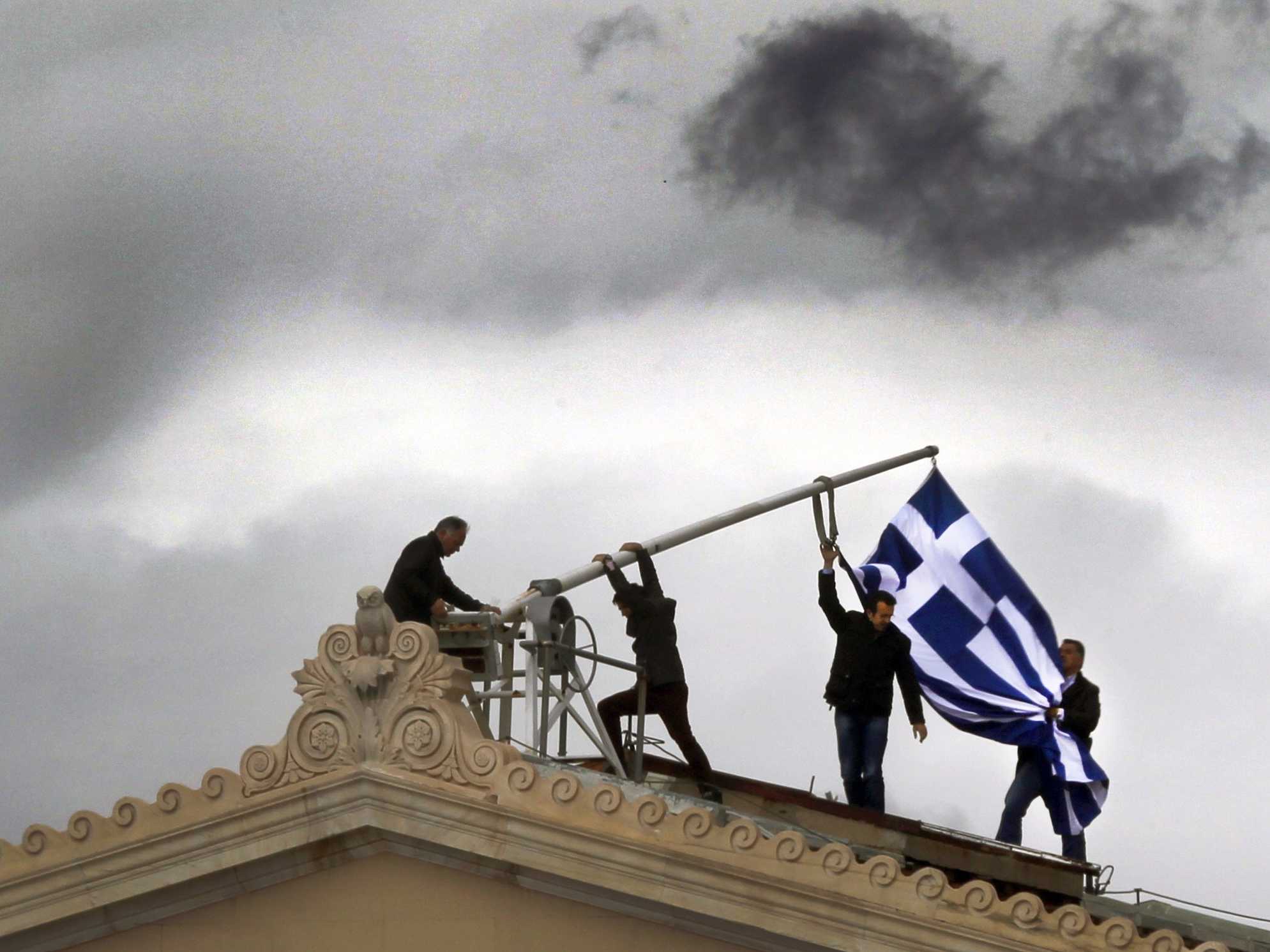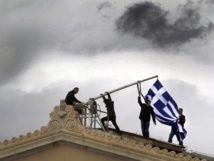In a small room with a rather plain looking wooden table sat the Alexis Tsipras, the Greek Prime Minister, along with Angela Merkel, the German Chancellor and Francois Hollande, the French President and a other officials. These key players were trying to avert a financial meltdown that is threatening Greece, the Euro as well as the European Union.
So as to avoid a bankrupt Greece, the German Chancellor and the French President made their final offer of a few billions Euros in aid provided Tsipras changes his economic course and brings in financial reforms demanded by Greek’s creditors.
According to Greek sources party to the negotiations, the meeting was a short one. This Greek economic tragedy had been dragging on for a while now and the participant’s body language looked stiff, their look – tired. Tsipras broke the tension by deciding to close the negotiations and head for an emergency meeting with his cabinet. Even as he negotiated with his two colleagues, he wanted the citizens of the Greek nation to decide their own fate, for he and his cabinet colleagues were unable to come to terms with Greek’s creditors.
As he flew back to Athens that very day, as per Greek officials, he along with his cabinet decided to take Greece on the referendum road. An election would be too long drawn, but a referendum, he surmised could be barometer for the will of the Greek people. This decision was announced on television late at night and shortly before doing so, Hollande and Merkel were informed by telephone.
What is at stake is more than just money, for this Greek economic tragedy tests the very cord that binds nations to the European Union. While for Greece it is for its sovereignty, for the European Union it is a litmus test of its unity, of whether the 19 nation single currency bloc can stick together for the greater good and make its nations meet agreed rules for economic standards.
Greek’s call for referendum certainly did not go down well with finance minister from the Eurogroup. They along with the International Monetary Fund (IMF) had earlier rescued Greece from its fiscal liabilities with a gigantic bailout program. Greece was scheduled to payback Euro 1.6 billion by the end of June. But it could not, thus the crisis.
With Tsipras taking the referendum route, the Eurogroup’s patience for economic reform for Greek came to a grinding halt. The European Central Bank (ECB) which was keeping Greek banks afloat with Euro 89 billion decided that enough was enough, Greece’s emergency funding had to stop.
For citizens of Greece, fearful that their entire life’s saving would be wiped out in a single stroke, decided to queue up in front of ATMs and started to withdrawn their life’s saving. In order to control this crisis, Tsipras ordered that banks remain close and introduced capital controls.
Greek’s referendum is scheduled to be held on the 5th of July, although there are rumours going around that it may be cancelled at the last minute. However, if it goes through, the citizens of Greece have a fateful choice to make: they could either go on their own and cut themselves off from the European Union or they could swallow the less bitter pill of economic reforms and have a brighter future with the European Union. For their part, European leaders have made it clear, the decision to not enforce economic reforms amounts to quitting the Eurozone. Tsipras however, differs from this point of view, preferring to be part of the European Union and still have his way.
Only the future will tell whether Greece can have the cake and eat it too.
References:
http://www.reuters.com/article/2015/07/01/us-eurozone-greece-negotiations-specialr-idUSKCN0PB4QK20150701
So as to avoid a bankrupt Greece, the German Chancellor and the French President made their final offer of a few billions Euros in aid provided Tsipras changes his economic course and brings in financial reforms demanded by Greek’s creditors.
According to Greek sources party to the negotiations, the meeting was a short one. This Greek economic tragedy had been dragging on for a while now and the participant’s body language looked stiff, their look – tired. Tsipras broke the tension by deciding to close the negotiations and head for an emergency meeting with his cabinet. Even as he negotiated with his two colleagues, he wanted the citizens of the Greek nation to decide their own fate, for he and his cabinet colleagues were unable to come to terms with Greek’s creditors.
As he flew back to Athens that very day, as per Greek officials, he along with his cabinet decided to take Greece on the referendum road. An election would be too long drawn, but a referendum, he surmised could be barometer for the will of the Greek people. This decision was announced on television late at night and shortly before doing so, Hollande and Merkel were informed by telephone.
What is at stake is more than just money, for this Greek economic tragedy tests the very cord that binds nations to the European Union. While for Greece it is for its sovereignty, for the European Union it is a litmus test of its unity, of whether the 19 nation single currency bloc can stick together for the greater good and make its nations meet agreed rules for economic standards.
Greek’s call for referendum certainly did not go down well with finance minister from the Eurogroup. They along with the International Monetary Fund (IMF) had earlier rescued Greece from its fiscal liabilities with a gigantic bailout program. Greece was scheduled to payback Euro 1.6 billion by the end of June. But it could not, thus the crisis.
With Tsipras taking the referendum route, the Eurogroup’s patience for economic reform for Greek came to a grinding halt. The European Central Bank (ECB) which was keeping Greek banks afloat with Euro 89 billion decided that enough was enough, Greece’s emergency funding had to stop.
For citizens of Greece, fearful that their entire life’s saving would be wiped out in a single stroke, decided to queue up in front of ATMs and started to withdrawn their life’s saving. In order to control this crisis, Tsipras ordered that banks remain close and introduced capital controls.
Greek’s referendum is scheduled to be held on the 5th of July, although there are rumours going around that it may be cancelled at the last minute. However, if it goes through, the citizens of Greece have a fateful choice to make: they could either go on their own and cut themselves off from the European Union or they could swallow the less bitter pill of economic reforms and have a brighter future with the European Union. For their part, European leaders have made it clear, the decision to not enforce economic reforms amounts to quitting the Eurozone. Tsipras however, differs from this point of view, preferring to be part of the European Union and still have his way.
Only the future will tell whether Greece can have the cake and eat it too.
References:
http://www.reuters.com/article/2015/07/01/us-eurozone-greece-negotiations-specialr-idUSKCN0PB4QK20150701



















